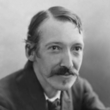The time machine
Description
More Details
Parrinder, Patrick,1944- editor., edt
Warner, Marina,1946- writer of introduction., win
Wells, H. G. Author
Wells, H. G. (Herbert George) Author
9780786241026
9780141439976
9781620115312
Excerpt
Similar Titles From NoveList
Similar Authors From NoveList
Published Reviews
Booklist Review
Commuter's Library proposes some classical authors as traveling companions. Cosham's velvety voice is perfect for the Kipling stories; his reading of Mowgili's adventures and especially "Rikki-Tikki-Tavi" in Stories of the Jungle is superlative. The three audiobooks of H. G. Wells' works are given sympathetic readings, with The Time Machine and "The Country of the Blind" in The Cone exceptionally well performed. Somewhat less successful is Twain's minor tale, offered in a slightly stagy version. These sturdily packaged audiobooks feature brief notes and the authors' pictures on clearly printed, easily read covers. ~--Karen Harris
School Library Journal Review
Gr 3-5-- An adaptation of a major portion of H. G. Wells's classic. Rapid-fire short sentences and sentence fragments set the pace and add to the intensity of the action. The Time Traveler and several of his friends are quickly introduced, and then readers are immediately drawn into the future world. The protagonist narrowly survives his initial travels, returning to tell his friends about his harrowing adventures. He sets off once again, leaving the story's end in question--possibly motivating readers to turn to the original for further exploration. Eden's numerous black-and-white drawings are effective in enhancing the narrative. While certainly not a substitute or replacement for the depth and perspectives offered by the real thing, this version lends itself to presentation and discussion with young readers about the genre and about Wells's creative genius in an era long before Steven Spielberg. --Janie Schomberg, Leal Elementary School, Urbana, IL (c) Copyright 2010. Library Journals LLC, a wholly owned subsidiary of Media Source, Inc. No redistribution permitted.
Library Journal Review
This abridged classic is buoyed by a spirited dramatization featuring Leonard Nimoy and John de Lancie, also known, respectively, as "Spock" and "Q" to Star TrekR fans. The Time Traveler's tale of the future is a disturbing vision of the human situation as it appeared to Wells in the late 19th century. The Traveler encounters a community consisting of only two species of animals: the barbaric Morlocks and the gentle Eloi. The evolution of these two species began in industrialized England. Nimoy, as the Time Traveler, and de Lancie, as his 19th-century friend and confidant, are superb in their roles and clearly having fun with this production. The supporting crew of readers provide a robust atmosphere of doubt, debate, and incredulity. This work is part of a promising new sf series distributed by Simon & Schuster Audio. Highly recommended.Ray Vignovich, West Des Moines P.L., Iowa (c) Copyright 2010. Library Journals LLC, a wholly owned subsidiary of Media Source, Inc. No redistribution permitted.
Horn Book Review
The series title is a terrible misnomer. These books should be called butchered classics. (c) Copyright 2010. The Horn Book, Inc., a wholly owned subsidiary of Media Source, Inc. No redistribution permitted.


































